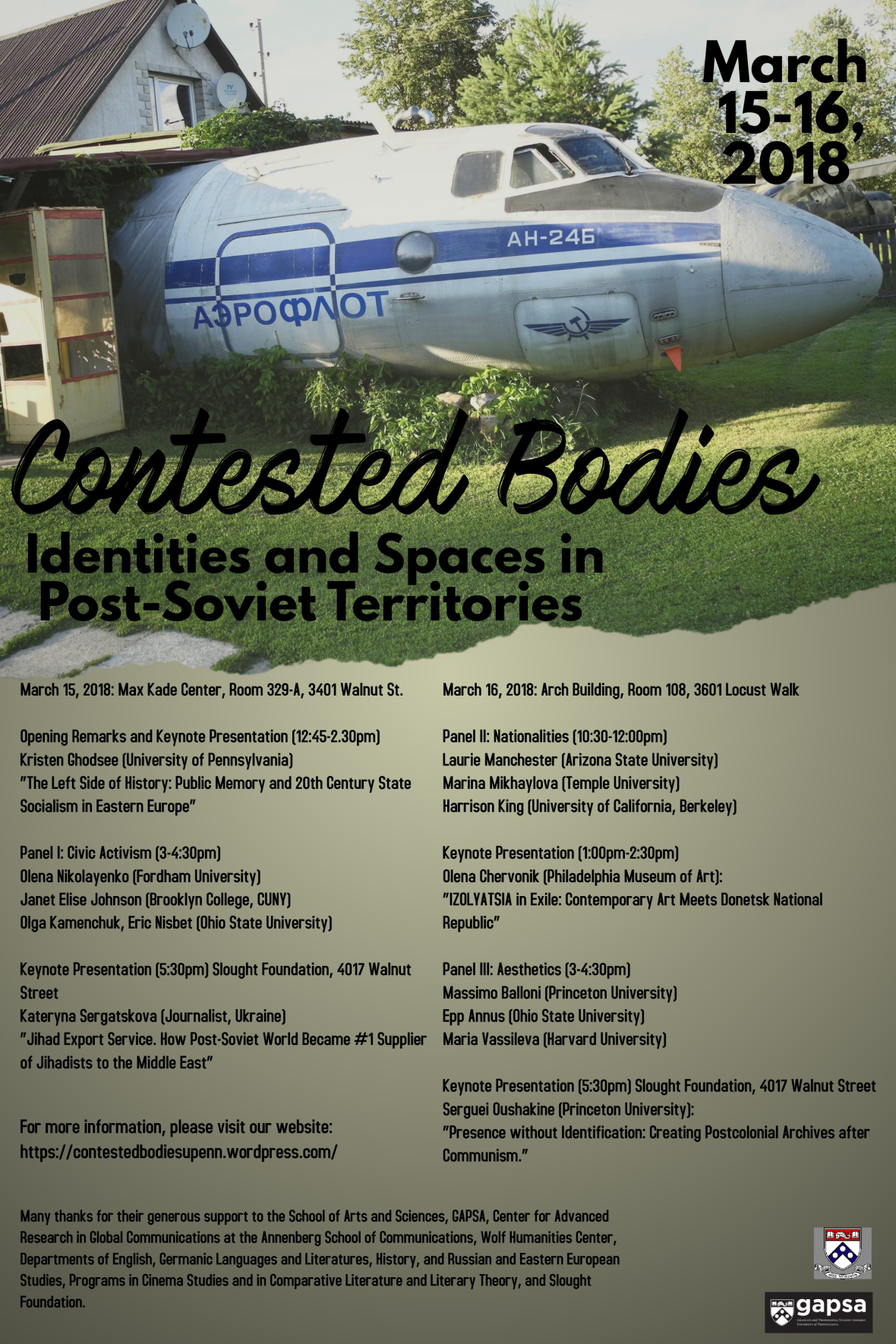Conference presented by the Department of Russian and East European Studies
What does it mean to be a ‘post-Soviet person’ today? The Soviet Union was created and held together on the premise that the power of class consciousness could create a community that transcends the limitations of ethnicity and language. The events of 1991 shattered this illusion. As the USSR dissolved, newly created states and people across the post-Soviet space were left with the task of figuring out who they were and to what country, body politic, language, and culture they belonged. In the early post-Soviet years, this process was manifested in social violence. As time passed, however, it began to seem that the people and states of the region were embarking on an era of peaceful co-existence, built on shared recognition of their common history and present situation in the world.
After armed conflicts between Russia and Georgia in 2008 and Russia and Ukraine in 2014, the post-Soviet social space is unstable and contested. What happened to people’s lives after the dissolution of the USSR? How did its sudden collapse affect the cultural sphere, language, and artistic production? Our conference will consider these and other questions.
The conference program features both invited speakers and panels completed from open-call submissions, with keynote presentations by Olena Chervonik (Art Curator) and Serguei Oushakine (Princeton University).
Full conference details and agenda: https://contestedbodiesupenn.wordpress.com/.



